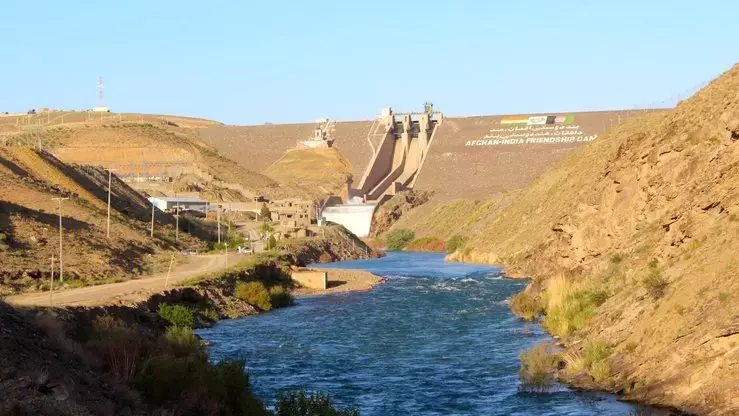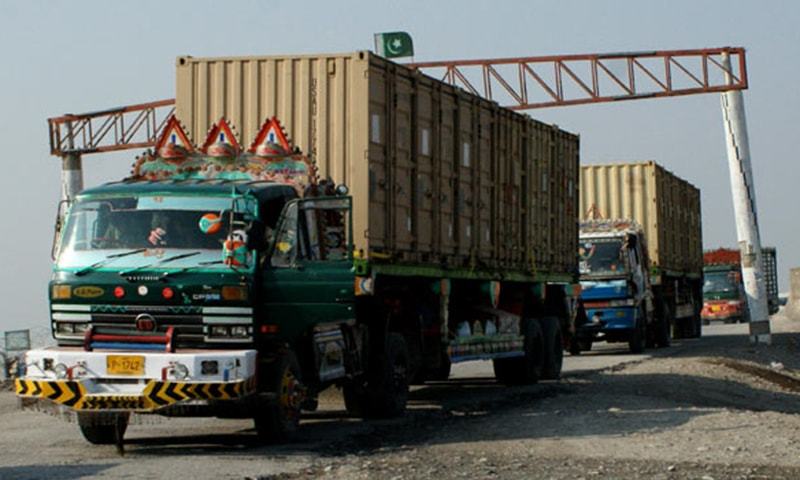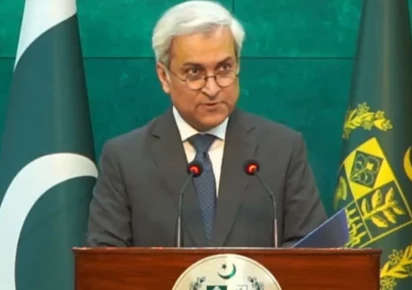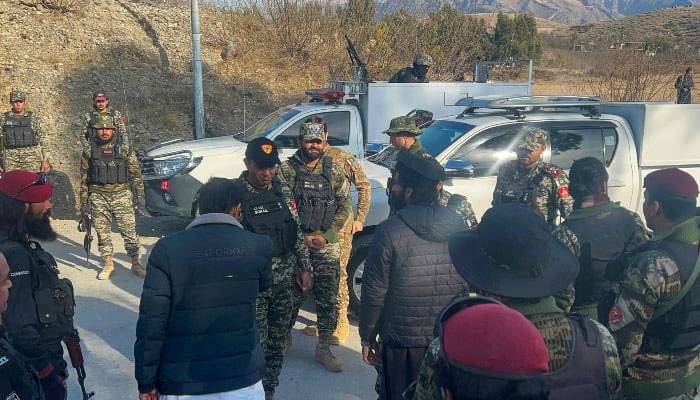A sensitive water-related situation is emerging between Pakistan and Afghanistan, centred on the Kabul River. The river is not only environmentally and geographically important, but it has also become a sensitive issue in the political relations between the two countries. The Kabul River system supports Pakistan’s agriculture and energy needs, yet it also creates strategic and diplomatic challenges—especially because there is no formal water-sharing agreement between Pakistan and Afghanistan.
Afghanistan’s rapid construction of dams, backed by foreign investment—particularly India’s involvement—has raised alarms in Pakistan. These dams could reduce the flow of water into Pakistan, affecting agriculture, electricity generation, and overall food security. Although Pakistan enjoys certain upstream and downstream hydrological advantages, the country remains highly vulnerable because its agriculture and energy needs depend heavily on this water.
According to available data, Pakistan receives around 17 million acre-feet of water annually from the Kabul River, supplying nearly 20% of irrigation water for farmlands in Khyber Pakhtunkhwa. If Afghanistan completes its planned dams, Pakistan could lose about 3 million acre-feet of this water. Such a reduction would directly affect crops, water storage, and hydropower production in Khyber Pakhtunkhwa and Punjab. Climate change is further increasing uncertainty by altering the natural flow of the river.
Pakistan’s major political concern is that Afghanistan might use its water infrastructure as a tool of political or economic pressure. India’s involvement further complicates the situation, as New Delhi is providing financial and technical support for Afghan dams and agricultural projects, reinforcing regional geopolitical tensions.
At a time when diplomatic relations are strained and bilateral trade remains suspended, a critical question arises: Will Afghanistan follow India’s approach and use water as a strategic weapon, or will it learn from past experiences and engage in meaningful dialogue with Pakistan?
India’s Growing Role Raises Concern in Pakistan
India’s renewed offer to help Afghanistan with water management and dam construction has caused anxiety in Pakistan. Experts worry that New Delhi’s role may deepen regional water disputes and worsen relations between Islamabad and Kabul.
India’s Ministry of Water Resources recently expressed willingness to support Afghanistan in “sustainable water management,” including hydropower projects. This statement came after Afghan Foreign Minister Amir Khan Muttaqi’s visit to New Delhi, during which both countries issued a joint declaration emphasizing cooperation in infrastructure and resource development.
Indian Foreign Ministry spokesperson Randhir Jaiswal reiterated India’s commitment to Afghanistan’s “sovereignty, territorial integrity, and independence.” However, this announcement has been met with concern in Pakistan, where tensions with both Afghanistan and India remain high and mutual accusations continue to escalate.
A sensitive water-related situation is emerging between Pakistan and Afghanistan, centered on the Kabul River. The river is not only environmentally and geographically important, but it has also become a sensitive issue in the political relations between the two countries. The Kabul River system supports Pakistan’s agriculture and energy needs, yet it also creates strategic and diplomatic challenges—especially because there is no formal water-sharing agreement between Pakistan and Afghanistan.
Afghanistan’s rapid construction of dams, backed by foreign investment—particularly India’s involvement—has raised alarms in Pakistan. These dams could reduce the flow of water into Pakistan, affecting agriculture, electricity generation, and overall food security. Although Pakistan enjoys certain upstream and downstream hydrological advantages, the country remains highly vulnerable because its agriculture and energy needs depend heavily on this water.
According to available data, Pakistan receives around 17 million acre-feet of water annually from the Kabul River, supplying nearly 20% of irrigation water for farmlands in Khyber Pakhtunkhwa. If Afghanistan completes its planned dams, Pakistan could lose about 3 million acre-feet of this water. Such a reduction would directly affect crops, water storage, and hydropower production in Khyber Pakhtunkhwa and Punjab. Climate change is further increasing uncertainty by altering the natural flow of the river.
Pakistan’s major political concern is that Afghanistan might use its water infrastructure as a tool of political or economic pressure. India’s involvement further complicates the situation, as New Delhi is providing financial and technical support for Afghan dams and agricultural projects, reinforcing regional geopolitical tensions.
At a time when diplomatic relations are strained and bilateral trade remains suspended, a critical question arises: Will Afghanistan follow India’s approach and use water as a strategic weapon, or will it learn from past experiences and engage in meaningful dialogue with Pakistan?
Pakistan-Afghanistan Water Dispute Raises Tensions Amid Regional Concerns
Pakistan and Afghanistan share several border rivers, including the Kunar and Kabul rivers. These rivers irrigate farmland in Khyber Pakhtunkhwa before eventually joining the Indus River. Despite decades of mutual dependence, the two countries do not have a formal water-sharing treaty, unlike Pakistan and India under the Indus Water Treaty. This makes the issue highly sensitive.
The dispute comes at a time of rising distrust between the neighbours. Pakistan accuses Kabul of harbouring militants from the banned Tehreek-e-Taliban Pakistan (TTP), while the Afghan Taliban government accuses Islamabad of violating Afghan airspace with drone strikes. In this tense environment, water has emerged as a potential new point of conflict.
Abdul Wali Yousafzai, former superintendent engineer of Khyber Pakhtunkhwa’s Irrigation Department, warned that India’s growing involvement in Afghanistan’s water projects could pose a serious threat to Pakistan’s water security. He said that India has long planned water storage projects in Afghanistan’s Lal Pur region and could use water as a political tool, similar to previous pressures on Pakistan.
He explained that Afghanistan currently has only small reservoirs for agriculture and lacks the technical and financial capacity to build large dams. With Indian assistance, these projects could potentially be used to pressure Pakistan, threatening agriculture that depends on water channels from the Chitral region and the Warsak Dam.
Political, Not Just Water, Issue
Journalist Shahabullah Yousafzai of Express Tribune said the current debate has been exaggerated and politicized. He noted that 9 to 10 water channels flow from Afghanistan into Khyber Pakhtunkhwa and Balochistan, but the Kunar River has been made a political issue. He said, “This is less about water and more about politics. Pakistan exerts pressure on Afghanistan through airstrikes, refugee policies, and trade, while Afghanistan may use water projects as a countermeasure.”
He added that Afghanistan’s attempts to build small reservoirs, such as in Khost, have largely failed due to limited engineering capacity. Blocking or controlling these rivers is technically impossible, but without a formal water treaty, even minor misunderstandings could escalate into regional conflict.
Kunar Dam Could Trigger New Tensions
Journalist Timur Khan from Peshawar highlighted that Afghanistan’s plan to build a dam on the Kunar River could directly impact Pakistan’s irrigation network. The river originates in Chitral, Pakistan, and enters Afghanistan via Arandu. About 32,000 hectares of farmland in Khyber Pakhtunkhwa rely on the Warsak Dam canal system, which depends on this river before it eventually flows into the Indus River.
He warned that any attempt to block the river would violate international norms. If Afghanistan builds the dam, it must ensure adequate downstream flow for Pakistan under international water law. While Pakistan has technical alternatives, such as diverting the Chitral River toward the Panjkora River in Upper Dir, diplomacy remains the most practical solution. Negotiations and regional cooperation are needed rather than conflict or involvement in India’s political strategies.
Growing Water Diplomacy Challenge
Analysts say India’s involvement in Afghanistan’s infrastructure reflects a broader strategy to increase regional influence and counter Pakistan. For Afghanistan, Indian support provides technical expertise and opportunities to improve irrigation and hydropower systems.
However, experts warn that without a formal water-sharing framework, a combination of security tensions, political distrust, and foreign involvement could turn shared rivers into a new front of regional competition. One analyst noted, “Water is becoming a new geopolitical fault line in South Asia. If mismanaged, it could threaten not only Pakistan-Afghanistan relations but also regional stability, which India is trying to influence.”







